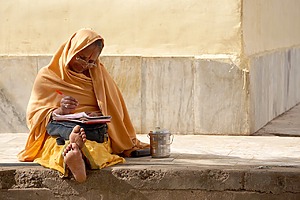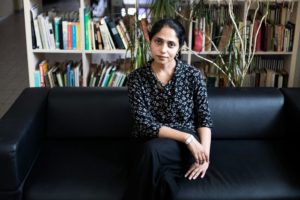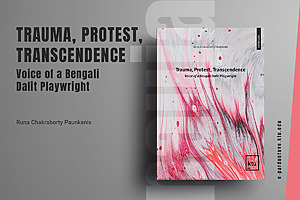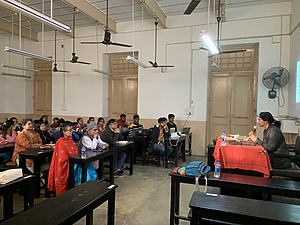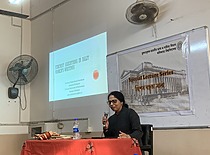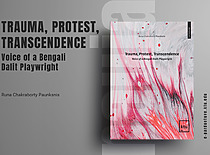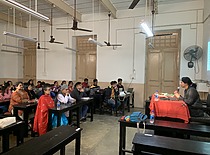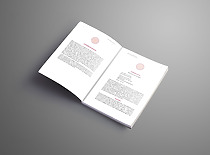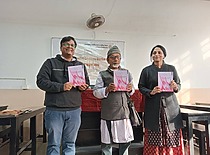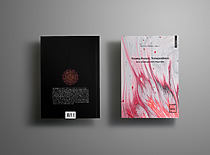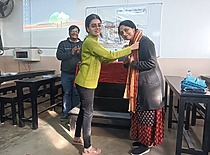As a scholar, she believes it is crucial to analyse the nuances of identity politics and evaluate the necessity of initiating this debate in contemporary India’s socio-political context. Although the practice of Untouchability is forbidden by Article 17 of the Indian Constitution, caste-based discrimination is still present.
“Untouchability may not be as pervasive in today’s India as it was in earlier times, but low-caste communities are still denied their rights and dignity. Incidents of atrocity against the Dalits are also escalating at an alarming rate. Hence, to be born as an “Untouchable” will continue to be an agonising experience unless the caste system is completely demolished,” says Chakraborty Paunksnis.
Opposing discrimination – the only way forward
Although diverse, the four plays featured in the anthology, possess a common theme – the revolutionary consciousness of a Dalit subject.
“Although the plays are very diverse in terms of their settings, they unequivocally employ the rhetoric of resistance. Besides, these plays represent different periods; hence, the readers can also comprehend the entrenched nature of the caste system and its continuity in Indian society for centuries,” explains Chakraborty Paunksnis, a translator of one of the plays and the author of the book’s Introduction.
Human civilisations are guilty of marginalising certain communities based on their birth, sex, occupation or physical features. According to Chakraborty Paunksnis, historical data shows that the practice of untouchability similar to the one found in the caste system, was also prevalent in Europe.
One may argue that nowadays, in certain societies, class, as a social category, also indicates a status hierarchy. However, an individual’s belonging to a certain caste is ritual-based and hereditary, i.e. fixed and perpetual.
“This indelibility of caste makes it distinctly separate from class since the caste-ascribed identity cannot be altered despite an individual’s class mobility,” explains Chakraborty Paunksnis.
According to her, the oppositional consciousness is required to outgrow such situations – one must be informed about the origin, history and nature of the caste system, to understand why this system was constructed and how it is being perpetuated.
“While the existence of caste discrimination among the Indian diaspora is a highly debated topic, there are instances (e.g. the United States) where attempts are being made to bring caste-based discrimination within the legal framework of the country. Building resistance to diverse forms of discrimination is required to make our world a better place,” says Dr Runa Chakraborty Paunksnis, an Assistant Professor in KTU’s Faculty of Social Sciences, Arts and Humanities.
The anthology of Dalit literature, edited by Chakraborty-Paunksnis and published by KTU is one of the means to promote the message of equal opportunity and inclusivity. The book is available online.


